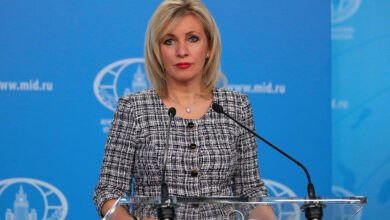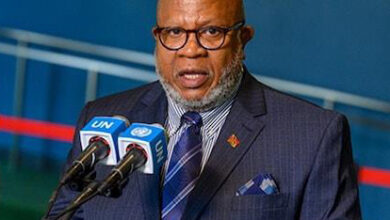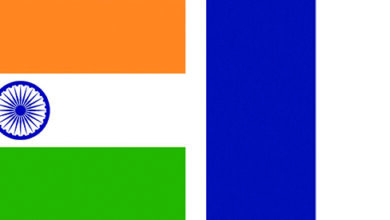Modi makes final pitch for NSG at Tashkent
New Delhi. Prime Minister Narendra Modi travelled to Tashkent June 23, to make a final diplomatic pitch for India’s entry into the Nuclear Suppliers Group (NSG). Sources confirmed to India Strategic that the Indian Prime Minister would attend the summit of the Shanghai Cooperation Organisation (SCO) on June 23 and 24 in the Uzbek capital and hold some key bilateral meetings.
The first engagement he had in Tashkent was a bilateral meeting with President Xi Jinping of China. During the course of the nearly 50-minute meeting with President Xi, Prime Minister Modi urged China to make “an objective assessment of India’s application and judge it on its own merit,” India’s Foreign Ministry spokesman Vikas Swarup said. The PM told Xi “China should contribute to the emerging consensus in Seoul,” where the NSG plenary is currently on.
Sources in Seoul told India Strategic June 23 that India’s application to become a member of the NSG would be considered during this session.
The Prime Minister is also meeting with Presidents Vladimir Putin of Russia and Nursultan Nazarbayev of Kazakhstan on the sidelines of the SCO summit, to seek the former’s assistance and support for India’s entry into the NSG, the high table of global nuclear commerce.
The Prime Minister is personally leading the Indian diplomatic effort to enter the NSG. China has led the group of countries opposing India’s membership of the NSG and Modi’s meeting with Xi is being seen as a last minute bid to convince Beijing to reconsider its opposition to India’s bid and change its point of view.
Indian Foreign Secretary Subrahmanyam Jaishankar, who travelled to Beijing last week to meet with Chinese officials and persuade them of the need to admit India, has already reached Seoul to meet with as many representatives from the six countries holding out against India’s membership bid as possible.
The plenary session which will consider India’s membership bid is due in Seoul coincidentally on the same days as the SCO summit; June 23 and 24.
Sources in government told India Strategic that telephones at the Ministry of External Affairs had been buzzing with activity and every one from the External Affairs Minister Sushma Swaraj to every senior official had been working the phones to speak with counterparts and friends at all levels in the 48 member countries of the NSG.
A quietly optimistic Ms Swaraj said China, which has been leading the list of countries opposing India’s entry, is “not opposing India” but seeking procedural clarifications. It is opposed to an exception being made for India, Beijing has specified, and is batting to try and ensure that its close “all weather” ally Pakistan is also admitted.
“We hope to become a member of the NSG by year-end. China doesn’t oppose India’s membership, China is speaking about procedure,” said Ms Swaraj at her annual press conference June 19. She had personally spoken to her counterparts in 23 of the 48 NSG member countries and was likely to touch all bases by June 23.
“I see a consensus happening,” the External Affairs Minister said, expressing hope that India would succeed in its bid.
India is pushing for entry into the NSG particularly to advance the cause of climate change, the EAM said. With its burgeoning power needs for development, India is committed to procuring 40 per cent of its power requirements from non-fossil fuels, of which nuclear energy will play a substantial part.
China is leading a group of nations (which also includes Turkey, Austria, Kazakhstan, Ireland, New Zealand and South Africa) holding out against India’s membership to the NSG that oversees global trade in advanced nuclear material and technology.
During his recently-concluded five-nation Western tour, Modi managed to secure the backing of Switzerland and Mexico, both of which were earlier not supportive of India’s entry into the NSG.
The United States is strongly pushing the Indian entry, with Secretary of State John Kerry writing to all member states to support India’s entry. President Barack Obama, when he came to India in January 2015, had said his government was committed to ensuring India’s entry into all four global WMD regulatory regimes; The Wassenaar Arrangement, on Export Controls for Conventional Arms and Dual-Use Goods and Technologies; The Nuclear Suppliers Group (NSG), for the control of nuclear related technology; The Australia Group (AG) for control of chemical and biological technology that could be weaponized, and The Missile Technology Control Regime (MTCR) for the control of rockets and other aerial vehicles capable of delivering weapons of mass destruction.
France, after the United States, has also come out in strong support for India’s membership bid and has urged member nations to take a “positive decision”.
“France considers that India’s entry into the four multilateral export control regimes (NSG, MTCR, The Australia Group, The Wassenaar Arrangement) will bolster international efforts for combating proliferation,” a statement from the French Foreign Ministry said, a day before the NSG plenary meet at Seoul.
A key member of the 48-nation grouping, France also asserted that India’s participation in nuclear control regimes would help better regulate the export of sensitive goods, whether they are nuclear, chemical, biological, ballistic or conventional materials and technologies.
“In line with its active and long-standing support to India’s entry to the NSG as a full-fledged member, France calls on its members, who are meeting in Seoul on June 23, to take a positive decision,” the French foreign ministry statement said.
As strategic partners since 1998, France and India share common goals regarding the non-proliferation of weapons of mass destruction and their delivery systems.
British Prime Minister David Cameron called the Indian PM last week (June 17) and assured him that Britain was backing India’s admission, agencies reported.
A spokesperson for the British Prime Minister said, “The Prime Minister confirmed that the UK would firmly support India’s application. They agreed that in order for the bid to be successful it would be important for India to continue to strengthen its non-proliferation credentials, including by reinforcing the separation between civil and military nuclear activity,” the spokesperson said.
Britain, along with the US, Russia (former USSR), Canada, West Germany, France and Japan is one of the seven original members of the NSG.
India has been admitted into the 34 nation MTCR earlier this month.
India also enjoys most of the benefits of NSG membership under a September 2008 ‘special waiver’ of exemption to NSG rules, granted to support its civil nuclear cooperation deal with Washington. This is despite the fact that India has developed nuclear weapons and refused to sign the nuclear Non-Proliferation Treaty (NPT), the primary global arms control instrument.
Prime Minister Modi called President Putin to offer greetings for the Russian National Day on June 12, and also to request Russia’s assistance in bringing some members, like Kazakhstan, on board to support India. He also sought Putin’s help to make China more amenable.
Modi also sprung a surprise by tweeting his good wishes for President Xi of China on his birthday on June 15, after which there appears to have been a slight softening in the Chinese opposition to India’s entry to the NSG. It also helped that The India-US joint statement did not mention joint efforts to ensure freedom of navigation in the South China Sea.
China is opposing any exception for India and is insisting that if India is allowed entry into the NSG, so should it’s all-weather ally, Pakistan. With Pakistan’s record as a multiple proliferator (Nuclear, Missile and Terror Proliferator – NMTP), very few of the 48-member NSG countries are willing to consider Pakistan’s application, despite Sartaj Aziz, the Pakistani Foreign Policy Advisor, working the international hotlines.
The Chinese media, after initially tearing into India’s efforts to join the NSG, has softened enough to say that India could be admitted if it adopted an “independent foreign policy.”
“As long as all NSG members reach a consensus over how a non-NPT member could join the NSG, and India promises to comply with stipulations over the non-proliferation of nuclear weapons while sticking to its policy of independence and self-reliance, China could support New Delhi’s path toward the club,” said an opinion piece by Fu Xiaoqiang of the influential state-run think tank, China Institutes of Contemporary International Relations (CICIR).
Intensive diplomatic lobbying by India is apparently wearing down the opposition. It is, of course, ironic that the NSG, which was created to oppose India after it tested a nuclear device in May 1974, will be deliberating and even possibly admitting India into the NSG during the Seoul plenary.
Indian envoys are intensively pleading India’s case in capitals of all the 48 NSG member states, including in Beijing and, sources informed India Strategic that opposition to India’s entry appears to be decreasing. Some are quietly optimistic that India may actually come on board, although it is unclear whether it will happen. Those opposing India’s entry to the NSG argue that granting it membership would undermine global non-proliferation efforts and infuriate Pakistan, which responded to India’s bid with one of its own and backed by China.
The NSG works by consensus and every member needs to okay the entry of a new member.
Sources in the government told India Strategic that if China was left as the lone opponent, it was unlikely to oppose India’s application in isolation.
India has, over the past few years, launched a massive diplomatic exercise to secure membership to the NSG. President Pranab Mukherjee’s recent trip to China and just concluded visit to three African countries (Namibia has large uranium deposits) and Modi’s recent Western trip and visit to Tashkent are part of the final push.
Speaking about why India sought to join the NSG, Indian Foreign Secretary S Jaishankar said, “This [NSG membership] has been an objective that we have pursued for many years now. We believe we made a lot of progress and that has led us to formally apply to NSG some days ago. We are engaging all NSG members regarding this issue.”
“South Korea happens to be the chair of NSG meetings this year. It is high time that India gets invited to NSG as it has an impeccable track record,” the Indian foreign secretary said. “What matters to NSG members is the track record of an applicant. Getting us into the NSG will help facilitate nuclear trade with us,” Jaishankar said, arguing that India’s growing energy needs require a re-ordered nuclear supply regulation.
“The merits of our joining the NSG derive from the fact that we have a substantial expansion of our nuclear energy segment ahead of us… I mean if there are norms and practices in the world, proliferation is not an irrelevant concern to it. I think we have a very solid record with which much of the world is comfortable,” said the foreign secretary.
It’s now over to Tashkent and Seoul.





